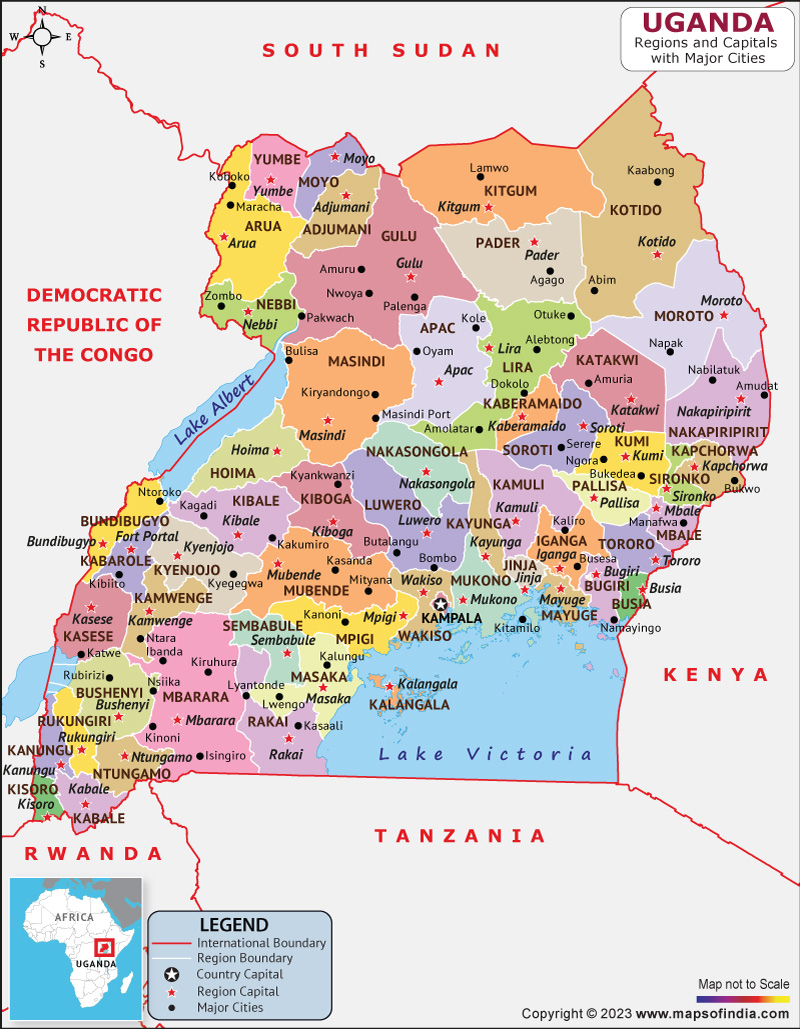Uganda is a nation situated in the Eastern portion of Africa, bordered by Rwanda to the southwestern front, Tanzania to the southern front, Kenya to the eastern front, the Democratic Republic of Congo to the western front, and South Sudan to the northern front. Uganda is known for its natural beauty, including the stunning Lake Victoria, the Nile River, and numerous national parks that are home to a variety of wildlife.
History:
Uganda has a rich history dating back thousands of years, with evidence of human settlement in the region as early as the Stone Age. The Kingdom of Buganda, one of the most powerful kingdoms in East Africa, was established in the 14th century and remained a major political and cultural force until Uganda gained independence from Britain in 1962.
Uganda's colonial period was marked by political instability and economic exploitation, and the country experienced a series of coups and violent conflicts in the decades following independence. The brutal regime of Idi Amin, which lasted from 1971 to 1979, is widely regarded as one of the most oppressive in modern history.
Culture:
Uganda is home to a diverse range of ethnic groups, each with its own unique culture and traditions. The largest ethnic group is the Baganda, who make up around 16% of the population and are concentrated in and around the capital city of Kampala. Other major ethnic groups include the Banyankole, Basoga, Bakiga, and Batoro.
Language:
Uganda is a linguistically diverse country, with over 40 different languages spoken. English is the official language and is widely spoken, particularly in urban areas and in the government and business sectors.
Geography:
The country's landscape is diverse, ranging from lush tropical forests to open savannahs and rolling hills. Uganda is also home to numerous lakes and rivers, including Lake Victoria, which is the largest lake in Africa and the second-largest freshwater lake in the world. The Nile River, which is the longest river in the world, also flows through Uganda.
| Official Name | Republic of Uganda |
| Capital | Kampala |
| Population | 45853778 |
| Area | 241,038 km2 |
| Currency | Shilling |
| Religion | Christianity |
| Language | Swahili, English |
| Major Cities | Gulu, Lira, Mbale |
FAQs
Q1: What is the current political situation in Uganda?
Uganda is a presidential republic, with President Yoweri Museveni in power since 1986. The country has experienced a long period of political stability under Museveni's rule, but has also been criticized for limiting political freedoms and suppressing opposition voices.
Q2: What is the wildlife like in Uganda?
Uganda is home to a diverse range of wildlife, including elephants, lions, leopards, buffaloes, and gorillas. The country has numerous national parks and wildlife reserves, including Bwindi Impenetrable National Park, which is home to over half of the world's remaining mountain gorillas.
Q3: What is the state of healthcare in Uganda?
Uganda's healthcare system is facing significant challenges, including limited funding, shortages of medical supplies and personnel, and a high burden of infectious diseases such as HIV/AIDS, malaria, and tuberculosis.
Q4: What is the role of religion in Ugandan society?
Religion plays an important role in Ugandan society, with Christianity and Islam being the two main religions. Around 85% of the population is Christian, with the majority belonging to the Roman Catholic or Anglican denominations.
Last Updated on: April 19, 2023
